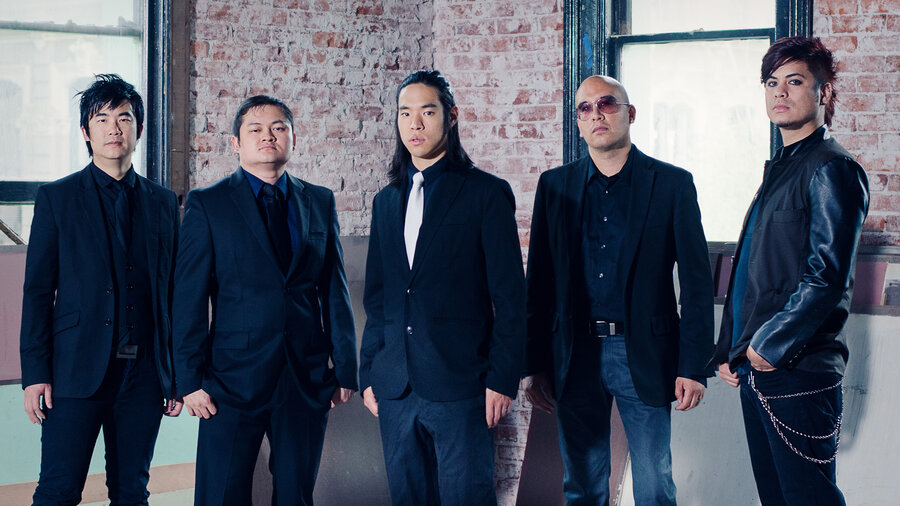 |
| Prof Alberts |
Afro-IP is delighted to receive a guest post from Prof Wim Alberts on a recent decision out of the United States on the registration of potentially disparaging words as trade marks. If you like this post, don’t forget that you can hear more from the Prof at his
seminar in April.
Date: 5 April 2016
Time: 08:00 – 15:30
Venue: University of Johannesburg, Council Chambers, Madibeng Building, Auckland Park Campus
Attendance fee: R500
To register, please contact Mrs Morgan Buntting before 30 March 2016 –
 Download full event
Download full event
Slanted Trade Marks and Permitted Disparagement
 |
| The Slants |
Ex Americana semper aliquid novi. This may be an apt description for the ruling of the United States Court of Appeal for the Federal Circuit in In re Tam, case 2014-1203, decided on 22 December 2015. This 114 page decision makes for interesting reading for a South African in particular. The casus belli simply was a trade mark application for THE SLANTS, filed in relation to entertainment in the nature of live performances by a musical band. Section 2(a) of the Lanham Act prohibits, amongst others, the registration of disparaging marks. Examples of marks that have been refused on this ground include:
STOP THE ISLAMISATION OF AMERICA
THE CHRISTIAN PROSTITUTE
DEMOCRATS SHOULDN’T BREED
FAGDOG
N.I.G.G.A. NATURALLY INTELLIGENT GOD GIFTED AFRICANS
Analogous “positive” marks that have been granted include:
THINK ISLAM
NEW MUSLIM COOL
MORMON SAVINGS
JEWISHSTAR
PROUD 2 B CATHOLIC
In the Tam matter, the Trademark and Trial Appeal Board refused the application for THE SLANTS as it was considered to refer negatively to Asian-Americans. On appeal, the court stated the following on page 13:
“Although the term “slants” has several meanings, the panel found that substantial evidence supported the Board’s finding that the mark likely refers to people of Asian descent. This included an article in which Mr. Tam described the genesis of the band’s name by explaining: “I was trying to think of things that people associate with Asians. Obviously, one of the first things people say is that we have slanted eyes. . . Moreover, the band’s Wikipedia page stated that the band’s name is “derived from an ethnic slur for Asians.” The Wikipedia entry quoted Mr. Tam: “We want to take on these stereotypes that people have about us, like the slanted eyes, and own them. We’re very proud of being Asian—we’re not going to hide that fact. The reaction from the Asian community has been positive.”
Also noteworthy was Mr Tam’s statement that he named his band to “reclaim” and “take ownership” of Asian stereotypes. Two important statements by the court were that strict scrutiny is used to review any governmental regulation that burdens private speech based on disapproval of the message conveyed. It was then held that section 2(a), which denies important legal rights to private speech on that basis, is such a regulation. Accordingly, it is subject to strict scrutiny. It was said that it is undisputed that it cannot survive strict scrutiny (page 17). Of particular importance though is the finding that the disparagement provision, which was held to discriminate based on disapproval of the message of a mark, is not content or viewpoint neutral. Earlier (page 4) it was stated that it is a bedrock principle underlying the First Amendment that the government may not penalize private speech merely because it disapproves of the message it conveys. That principle, so it was said, governs even when the government’s message-discriminatory penalty is less than a prohibition.
The court mentioned that another rejected mark, STOP THE ISLAMISATION OF AMERICA, proclaims that Islamisation is undesirable and should be stopped. The court also expressed the view that many of the marks rejected as disparaging convey hurtful speech that harms members of oft-stigmatized communities. “ However, the First Amendment protects even hurtful speech” (page 4). The important conclusion was reached that the part of section 2(a) that prohibits registration of “disparaging” marks was unconstitutional (page 4).

The question that immediately arises is what the impact of this decision will be on the famous WASHINGTON REDSKINS dispute, where the REDSKINS mark was expunged for being disparaging? There it was held in one of the various cases that a court must look at the views of Native Americans, not the general public(page 36)). The basis of this decision is of course that the part of section 2(a) isconstitutional. In the Tam ruling the court stated that what the Patents and Trademarks Office does is to look at what message the referenced group takes from the applicant’s mark in the context of the applicant’s use, and it denies registration only if the message received is a negative one (page 22):
“Thus, an applicant can register a mark if he shows it is perceived by the referenced group in a positive way, even if the mark contains language that would be offensive in another context. For example, the PTO registered the mark DYKES ON BIKES…after the applicant showed the term was often enough used with pride among the relevant population.”
In a South African context, an outcome such as that in the Tam case would be unthinkable. A plethora of legislation would see to that. What would be interesting is how an “us” mark, that is, a mark filed by a particular disparaged group would be approached here. Would the “reclaim” notion be accepted? In the United States it would seem that an application filed by an outsider cannot be refused, as the disparagement bar no longer exists. Therefore, even speaking as a non-American, one can perhaps predict that the Supreme Court will find grounds to overturn the ruling.
Professor Wim Alberts
University of Johannesburg
Continue Reading ...

 Download full event
Download full event
